Rebe Homes Blog
Helping People Discover Their Best Options Through...
The Rebe Homes Team helps our clients by providing...
Information with clear interpretation,
Judgment rooted in experience,
Insight that protects,
Conscious guidance based on integrity,
Meaning behind every decision,
Inspiration that encourages,
Relationships with service.
Information with clear interpretation,
Judgment rooted in experience,
Insight that protects,
Conscious guidance based on integrity,
Meaning behind every decision,
Inspiration that encourages,
Relationships with service.
Wednesday, October 26, 2016
Monday, February 22, 2016
Future Home Values: Where Do The Experts Think They Are Headed?
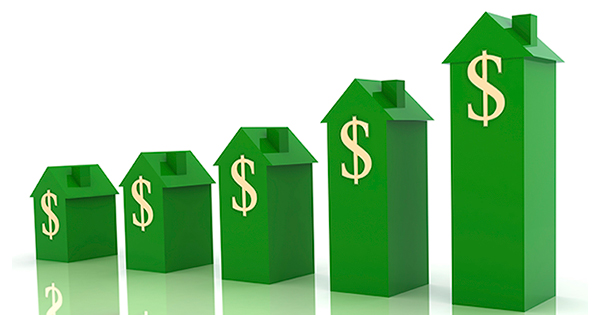
Today, many real estate conversations center on housing prices and where they may be headed. That is why we like the Home Price Expectation Survey.
Every quarter, Pulsenomics surveys a nationwide panel of over one hundred economists, real estate experts and investment & market strategists about where they believe prices are headed over the next five years. They then average the projections of all 100+ experts into a single number.
The results of their latest survey:
Home values will appreciate by 3.7% over the course of 2016, 3.3% in 2017 and 3.2% in the next two years, and finally 3.1% in 2020 (as shown below). That means the average annual appreciation will be 3.3% over the next 5 years.
The prediction for cumulative appreciation slowed slightly from 21.6% to 17.7% by 2020. The experts making up the most bearish quartile of the survey still are projecting a cumulative appreciation of 10.9%.
Bottom Line
Individual opinions make headlines. We believe the survey is a fairer depiction of future values.
Tuesday, February 16, 2016
Homeowner’s Net Worth is 45x Greater Than a Renter’s
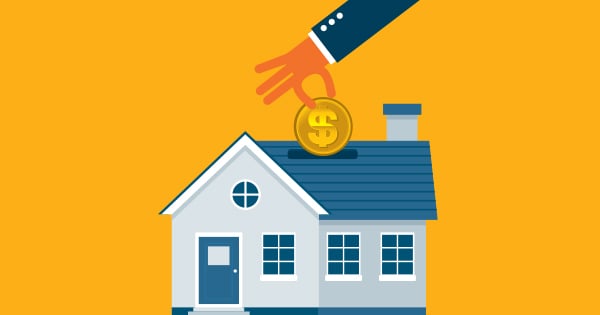
Every three years the Federal Reserve conducts a Survey of Consumer Finances in which they collect data across all economic and social groups. The latest survey, which includes data from 2010-2013, reports that a homeowner’s net worth is 36 times greater than that of a renter ($194,500 vs. $5,400).
In a Forbes article the National Association of Realtors’ (NAR) Chief Economist Lawrence Yun predicts that in 2016 the net worth gap will widen even further to 45 times greater.
The graph below demonstrates the results of the last two Federal Reserve studies and Yun’s prediction:
Put Your Housing Cost to Work For You
Simply put, homeownership is a form of ‘forced savings’. Every time you pay your mortgage you are contributing to your net worth. Every time you pay your rent, you are contributing to your landlord’s net worth.
The latest National Housing Pulse Survey from NAR reveals that 85% of consumers believe that purchasing a home is a good financial decision. Yun comments:
“Though there will always be discussion about whether to buy or rent, or whether the stock market offers a bigger return than real estate, the reality is that homeowners steadily build wealth. The simplest math shouldn’t be overlooked.”
Bottom Line
If you are interested in finding out if you could put your housing cost to work for you by purchasing a home, meet with a Rebe Homes real estate professional who can guide you through the process.
(480) 820-6988
Thursday, February 4, 2016
Harvard: Why Owning A Home Makes Sense Financially

We have reported many times that the American Dream of homeownership is alive and well. The personal reasons to own differ for each buyer, with many basic similarities.
Eric Belsky, the Managing Director of the Joint Center of Housing Studies at Harvard University expanded on the top 5 financial benefits of homeownership in his paper -The Dream
Lives On: the Future of Homeownership in America.
Here are the five reasons, each followed by an excerpt from the study:
1.) Housing is typically the one leveraged investment available.
“Few households are interested in borrowing money to buy stocks and bonds and few lenders are willing to lend them the money. As a result, homeownership allows households to amplify any appreciation on the value of their homes by a leverage factor. Even a hefty 20 percent down payment results in a leverage factor of five so that every percentage point rise in the value of the home is a 5 percent return on their equity. With many buyers putting 10 percent or less down, their leverage factor is 10 or more.”
2.) You're paying for housing whether you own or rent.
“Homeowners pay debt service to pay down their own principal while households that rent pay down the principal of a landlord.”
3.) Owning is usually a form of “forced savings”.
“Since many people have trouble saving and have to make a housing payment one way or the other, owning a home can overcome people’s tendency to defer savings to another day.”
4.) There are substantial tax benefits to owning.
“Homeowners are able to deduct mortgage interest and property taxes from income...On top of all this, capital gains up to $250,000 are excluded from income for single filers and up to $500,000 for married couples if they sell their homes for a gain.”
5.) Owning is a hedge against inflation.
“Housing costs and rents have tended over most time periods to go up at or higher than the rate of inflation, making owning an attractive proposition.”
Bottom Line
We realize that homeownership makes sense for many Americans for an assortment of social and family reasons. It also makes sense financially. If you are considering a purchase this year, contact a local professional who can help evaluate your ability to do so.
Thursday, January 28, 2016
Should I Buy Now Or Wait Until Next Year?
- The Cost of Waiting to Buy is defined as the additional funds it would take to buy a home if prices & interest rates were to increase over a period of time.
- Freddie Mac predicts interest rates to rise to 4.8% by next year.
- CoreLogic predicts home prices to appreciate by 5.3% over the next 12 months.
- If you are ready and willing to buy your dream home, find out if you are able to!
Thursday, January 21, 2016
Should You Treat Your New Year’s Resolution Like a Game?
|
Should You Treat Your New Year’s Resolution Like a Game?
I’ve heard it said, when you're shooting basketball free throws during practice, you shoot with skill. When you're shooting free throws during a game, you think about your aim. And when you're shooting free throws in overtime, you're a nervous wreck. Your skill is the same in all three cases - but because one goal means more to you than another, you let outside considerations weigh on your mind. A person who looks too hard at the outside gets clumsy on the inside.
To make sure you achieve your New Year’s resolution gracefully, ask yourself these four questions:
1. Am I focused on what I want?
Your goal must be something you want for yourself. Are you defining your goal as something you want or something you are trying to avoid? You’re more likely to experience happiness by adding pleasure into your life instead of simply omitting pain.
2. Do I need help to achieve my goal or can I do it all by myself?
If your resolution requires help from even one other person your goal can become limited by the energy or motivation of another person involved. Keep 100 percent control of your goal and only YOU decide when you’ll achieve it.
3. Is this something I must do now?
Experience shows if your goal can wait, it will. Explore the conditions necessary to move yourself into action and stay there. Imagine what will happen to the people you care about if you don’t follow through now.
4. Is it going to be worth it?
It’s great if your goal can be fun like a game. Often times things worth doing aren’t fun or easy at first, but things that are worth it feel like they were easier when you’re done.
Achieving big goals that are worth it is like playing on a basketball team, you win or lose together and some of the most important moments are decided when you are at the free-throw line.
Allen and Beth Rebenstorf
Rebe Homes Team!
480-236-8760
602-418-4202
|
Monday, January 4, 2016
Don’t Let Rising Rents Trap You!
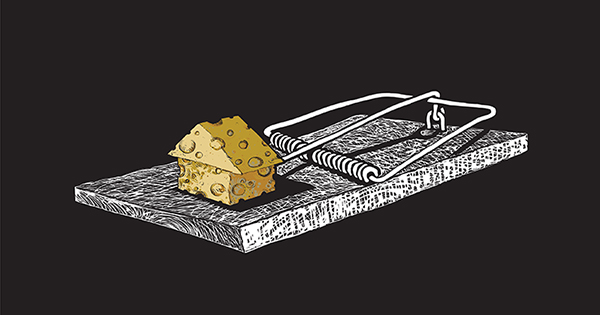
There are many benefits to homeownership. One of the top ones is being able to protect yourself from rising rents and lock in your housing cost for the life of your mortgage.
Don’t Become Trapped
Jonathan Smoke, Chief Economist at realtor.com recently reported on what he calls a “Rental Affordability Crisis”. He warns that,
“Low rental vacancies and a lack of new rental construction are pushing up rents, and we expect that they’ll outpace home price appreciation in the year ahead.”
The Joint Center for Housing Studies at Harvard University recently released their 2015 Report on Rental Housing, in which they reported that 49% of rental households are cost-burdened, meaning they spend more than 30% of their income on housing. These households struggle to save for a rainy day and pay other bills, such as food and healthcare.
It’s Cheaper to Buy Than Rent
In Smoke’s article, he went on to say,
“Housing is central to the health and well-being of our country and our local communities. In addition, this (rental affordability) crisis threatens the future value of owned housing, as the burdensome level of rents will trap more aspiring owners into a vicious financial cycle in which they cannot save and build a solid credit record to eventually buy a home.”
“While more than 85% of markets have burdensome rents today, it’s perplexing that in more than 75% of the counties across the country, it is actually cheaper to buy than rent a home. So why aren’t those unhappy renters choosing to buy?”
Know Your Options
Perhaps, you have already saved enough to buy your first home. HousingWire reportedthat analysts at Nomura believe:
“It’s not that Millennials and other potential homebuyers aren’t qualified in terms of their credit scores or in how much they have saved for their down payment.
It’s that they think they’re not qualified or they think that they don’t have a big enough down payment.” (emphasis added)
Many first-time homebuyers who believe that they need a large down payment may be holding themselves back from their dream home. As we reported last week, in many areas of the country, a first-time home buyer can save for a 3% down payment in less than two years. You may have already saved enough!
Bottom Line
Don’t get caught in the trap so many renters are currently in. If you are ready and willing to buy a home, find out if you are able. Have a professional help you determine if you are eligible to get a mortgage.
Subscribe to:
Posts (Atom)


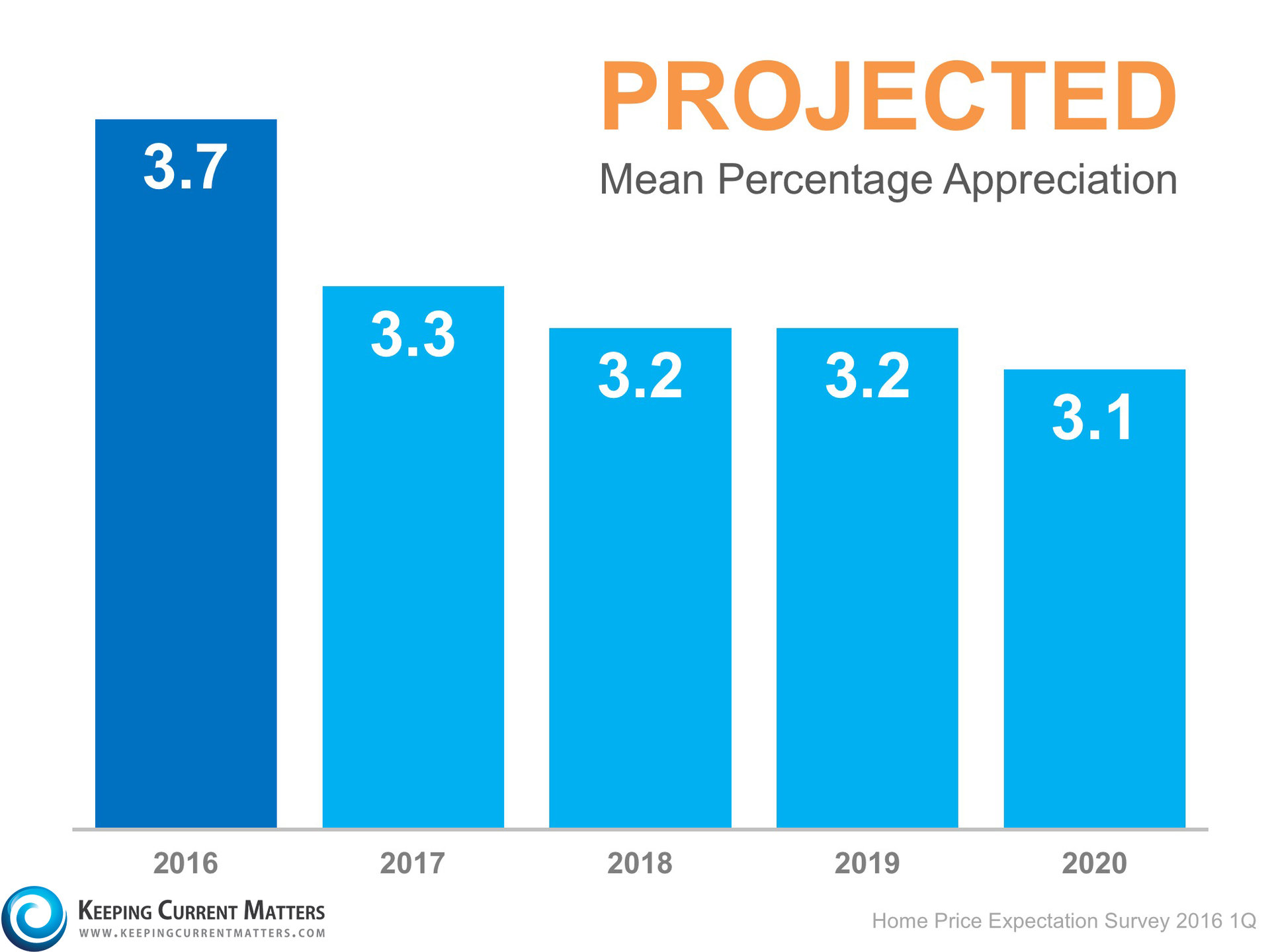
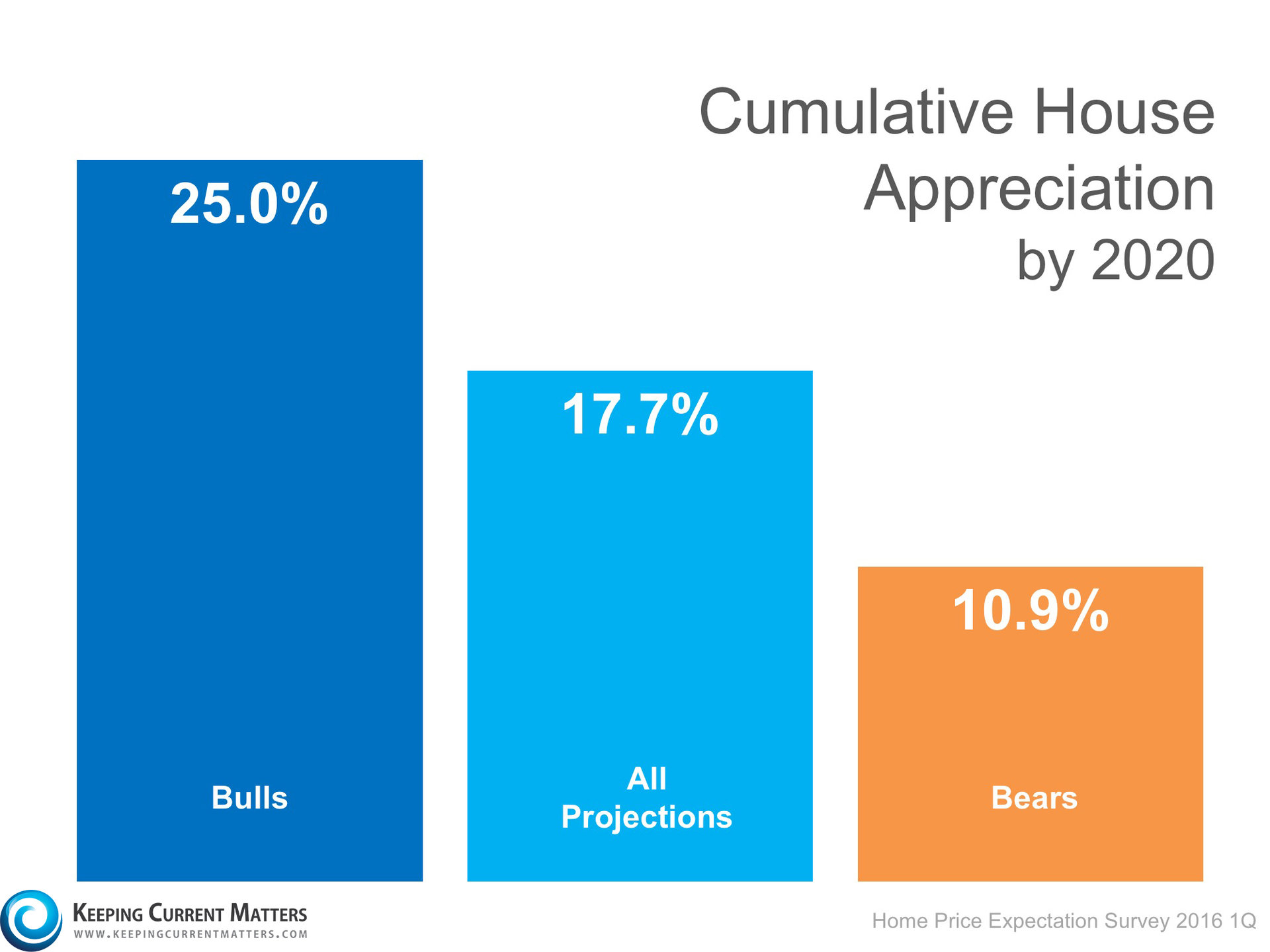
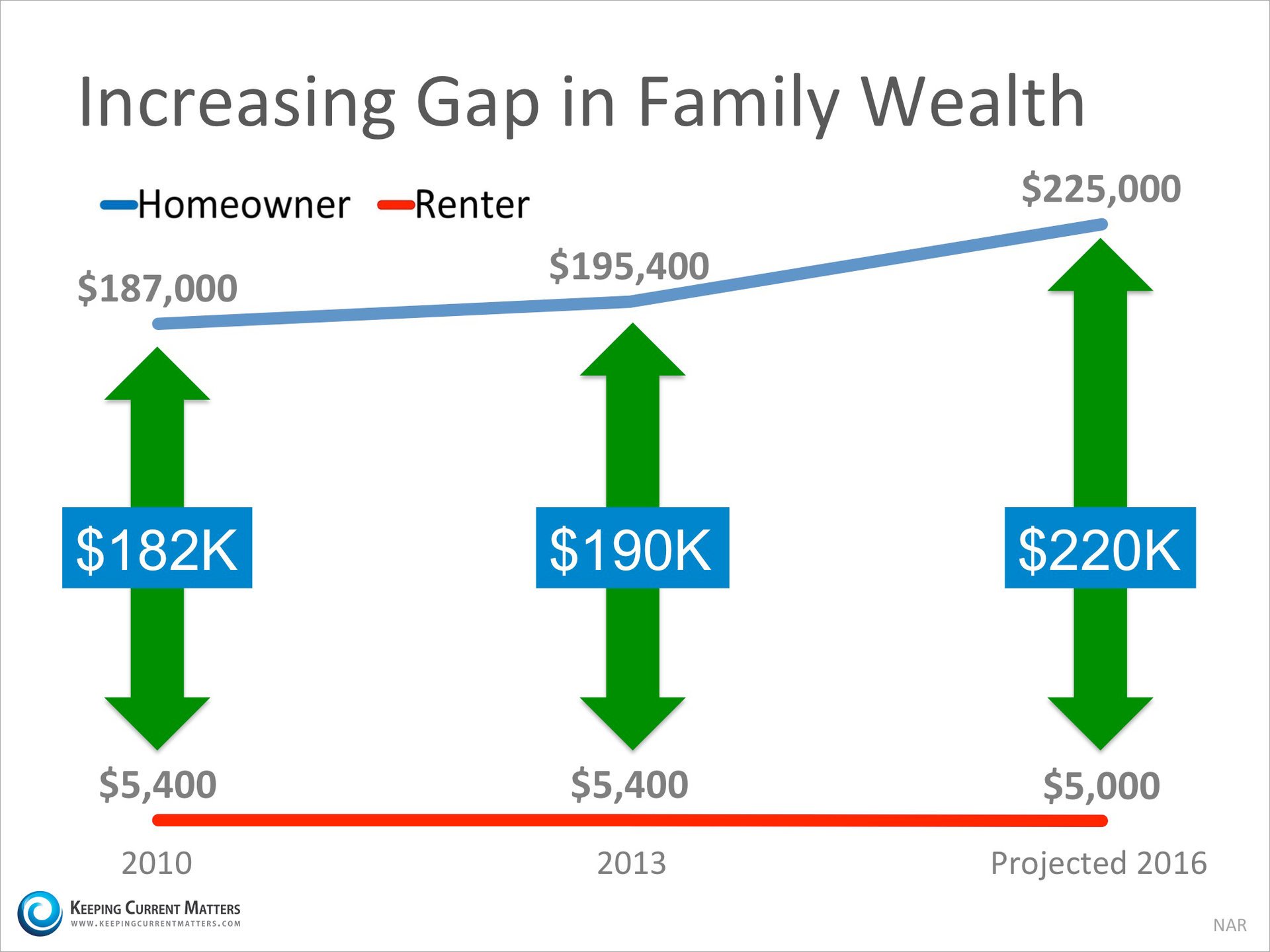
![Should I Buy Now Or Wait Until Next Year? [INFOGRAPHIC] | Keeping Current Matters](http://www.keepingcurrentmatters.com/wp-content/uploads/2016/01/Cost-of-Waiting-KCM.jpg)
